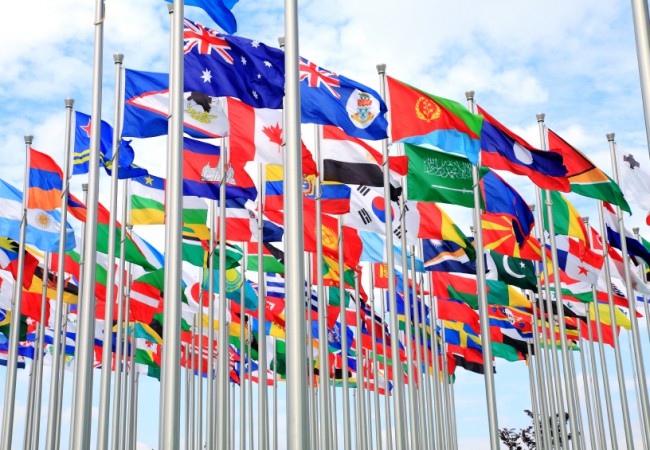
Can the Commonwealth breathe new life into its relationship with developing countries?
I got animated when I read the latest offering from the Commonwealth Expert Group on Trade (CEGT) meeting in Malta on 25-26 March 2015. The headline read: “Trade experts steer new course for developing Commonwealth countries”. The new course comprises: (i) mobilizing more aid for trade (AfT); (ii) exploring opportunities for value-added exportables to improve the trading position of small states; and (iii) promoting inclusive negotiations at the WTO to ensure capacity-constrained countries are included. My enthusiasm waned however by the familiarity of these measures and with the realization that they hardly constitute a new course. Be that as it may, I remain hopeful that the meeting has identified concrete steps on how to proceed differently on these issues and thus ensuring that they make a difference and greater impact this time around.
As regards AfT, Forum Island Countries (FICs), for instance, have been discussing this matter, on and off, since 2005 when it was launched. They have even agreed on the various governance structures to put in place in readiness for the surge in AfT funds. Admittedly, some AfT funds have trickled in. Some are still locked up in protracted trade negotiations like the Economic Partnership Agreement (EPA) and PACER Plus. However, Messrs Joseph Stiglitz and Andrew Charlton have reviewed AfT and their verdict is that it has “failed to live up to its promise of additional, predictable and effective finance to support developing countries’ integration into the global economy”. It is interesting to note that these two gentlemen had co-authored ‘Fair Trade for All – How Trade can Promote Development’ in 2005 and which explored how poorer countries of the world could be helped to help themselves through freer, fairer trade. Furthermore, Stiglitz himself is the former Chief Economist at the World Bank and a Nobel Laureate in Economics in 2001. He published ‘Globalization and its Discontents’ in 2002.
Emily Jones, Deputy Director of the Global Economic Governance Program, University of Oxford, wrote in 2013: “Having raised deep concerns about the failure of AfT, Stiglitz and Charlton make ambitious proposals for rebalancing the global trading system. The first pillar of their proposal is to enshrine and enforce a ‘right to trade’ and a ‘right to development’ through the WTO’s dispute settlement mechanism”. I hope that that these proposals fall on fertile ground as far as CEGT is concerned.
The second aspect of CEGT’s new course has in fact made a lot of progress in the Pacific. The EU, through Facilitating Agricultural Commodity Trade (FACT) in 2008 from the 9th European Development Fund (EDF), followed by Increasing Agricultural Commodity Trade (IACT) in 2011 from the 10th EDF, have had a head start in supporting commercial ventures and producer groups in becoming export oriented, market driven enterprises that will consistently supply overseas markets with competitive agricultural and forestry products. Appropriate value adding and with relevant certification have taken full advantage of the niche markets in developed countries offering premium pricing. The Pacific Horticultural and Agricultural Market Access (PHAMA) Program, now jointly funded by Australia and New Zealand, has added additional resources for the same general purpose and thus widening the number of beneficiaries.
There are prospective gains in value adding in other products in the region to which the Commonwealth can direct its attention. Apart from that, the Commonwealth can also address the non-tariff barriers whose imposition tends to grow with increasing market access negotiated under various trade agreements. The Commonwealth can first of all research and learn from the case of the fresh Fiji ginger exports to Australia in order to establish guidelines to follow when sanitary and phyto-sanitary requirements have been strictly complied with and yet there were still sectorial resistance existing in the import market.
The third element in the new course by the CEGT is perhaps the weakest of the three. Promoting inclusive negotiations at the WTO is not going to change the attitude of the large traders, the large developed country members. They will continue to preach free trade at the multilateral level and thence turn around to pour substantial resources for domestic subsidies. They will continue to determine who gets the nod to go into the Green Room for critical trade talks. Lessons from the past are instructive. Have the Small and Vulnerable Economies (SVE) achieved much as a special category of members? Have the applications of the Special and Differential Treatments (SDT) made much difference to the interests of the developing and least developed country members? The status of the Doha Round trade talks, intended to be developmental – but still inconclusive and in disarray – speaks volume as to who is running the show in Geneva.
If the ‘death of multilateralism’, in referring to the stalling of the Doha Round is of any substance, what is the merit in promoting inclusive negotiations at the WTO? Should we be directing our resources at regionalism and plurilateralism? Or even South-South coalitions?
The Commonwealth CEGT should take serious note. Group members should also take note of Dr Jason Hickel’s “Free trade and the death of democracy”. In this publication, Dr Hickel states that free trade is not about freedom at all. The term, he says, “is a trap – a brilliant framing device that neatly neutralizes opposition. If you take a stand against free trade you appear to be taking a stand against freedom itself, which is clearly not a tenable position”. He adds: “It turns out that it has very little to do with meaningful human freedom, and rather a lot to do with corporate freedom – the freedom of corporations to extract and exploit without hindrance”.

